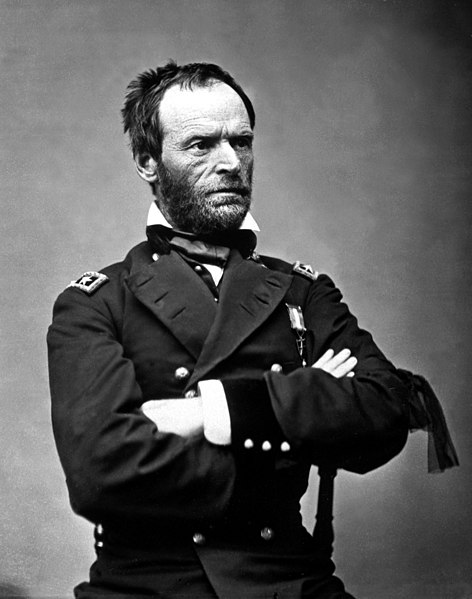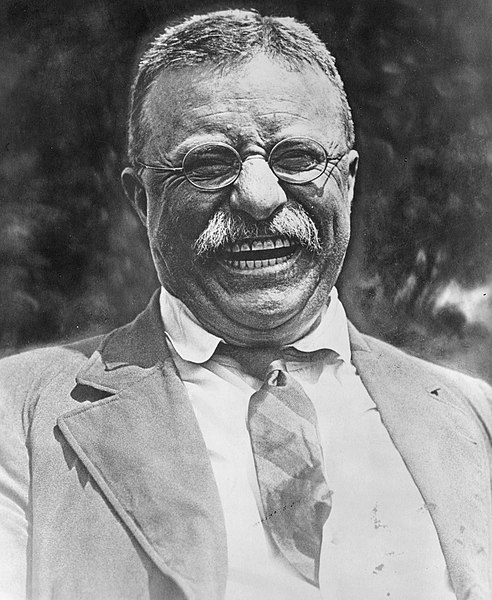Life Wounds, Books Heal -- American proverb
For a reprint of a five-star review of my historical novel Bill Hope: His Story, and a comment by me, go here and scroll down. It's the kind of review authors dream of and rarely get. To see my comment, click on "comment," in small print following the review. And feel free to add a comment of your own.

SMALL TALK
Since the sayings that follow have little to do with New York, the presumed subject of this blog, I'll do some small talk about someone who is very New York, albeit Staten Island. This comment is inspired by an article in the New York Times of December 21 by Alan Feuer, entitled "An Odd Staten Island Lawyer Now a Puzzle for Prosecutors." The gentleman in question is Richard Luthmann, whom I had never heard of before. A photo shows a man of 38, spectacled, his upper lip overlaid with a mustache resembling a hairy black caterpillar, and a black-bearded chin over a bow tie that is evidently his trade mark, this one being crimson in color and suggesting a small bat in flight.
So why is Mr. Luthmann a puzzle? First of all, being a devoted follower of "Game of Thrones," he once asked a judge to let him settle a lawsuit by dueling with his adversary's lawyer in what he called his "common law right to Trial by Combat." Also, when accused of creating phony Facebook pages to discredit his political enemies, he responded by writing on Facebook, "I am a bear with the taste of blood in my mouth." These and other antics help explain why he's considered a local oddity, Staten Island's version of the trickster. Perennially bow-tied, volatile and angry, he apparently resents his failure to qualify for a 2013 campaign for borough president, when he failed to obtain enough signatures to get on the ballot. A month after that he crashed his car into a guardrail and was arrested for drunken driving, though the charges were later dismissed.
But now the plot thickens. Federal prosecutors have accused him of a series of crimes that include the following:
- posting images on the Internet of a local politician with hash tages like "#targetpractice" and "#hunting season"
- trying to pay a stripper $10,000 to claim she was raped by a candidate running for district attorney
- trying to sell shipping containers of cheap filler material to local businessmen as scrap metal
- asking a Mafia associate to beat up one enemy and murder another
These charges have left Staten Island agog. Mr. Luthmann had been viewed as eccentric and flamboyant, but not violent -- in short, a harmless oddball -- but now, who knows? He is currently jailed for lack of bail, but his lawyer hopes to free him soon. Meanwhile, though innocent until proved guilty, he is my prime candidate for New York rascal of the moment, succeeding Martin Shkreli, whom I have chronicled often in the past, and who now is lost to us, confined in Durance Vile (see posts #306 and #317). Shkreli, now inmate #87850-053 in the Metropolitan Detention Center in Brooklyn, awaits sentencing on January 16, and the lawyer who helped him in his misadventures has himself been convicted of fraud and faces a possible 20 years in prison. Meanwhile, we will follow Mr. Luthmann's adventures with interest.
In the age of Trump and the era of fake news, we don't need to be reminded that history at times risks being a blend of myth
and legend, rather than solid fact. Many of the sayings famously attributed
to various historical figures often turn out to be fabrications. Let’s have a look at eight of them and see if
they are authentic.
1. Madame de Pompadour, “Après moi, le déluge.” (After me, the deluge.)
As the reigning mistress of
Louis XV, she supposedly said this, indicating a cynical indifference to what
might follow after her. In other words,
she’d had her fun and didn’t care it might cost later generations. Sometimes it has been attributed to the king
himself, and sometimes it has been rendered in the plural, “Après nous, le déluge.” In any case, the convulsions of the French
Revolution have been cited as what indeed did follow, making the remark
symptomatic of the blindness, folly, and selfishness of the ruling classes
prior to 1789.
 |
| Madame de Pompadour, portrait by François Boucher, ca. 1750. |
The only authentic reference to this remark comes in a
letter, circa 1788, of an actress named Marie Fel to a friend, recounting
anecdotes told her by her lover, the artist Maurice Quentin de La Tour, who had
painted a portrait of Madame de Pompadour in the 1750s. La Tour said that, while he was doing the
portrait, Louis XV entered the room, very despondent because of the French
defeat at the battle of Rossbach (1757).
Madame de Pompadour then told the king he must not be depressed, lest he
become ill, “au reste après eux le déluge”
(“in any case, it would be after them that the deluge would come”).
Assuming this anecdote is accurate, what did la Pompadour
mean? Was she cynically prescient, or
was she simply quoting a popular saying already in use? In a 1782 letter to the French philosophe
d’Alembert, Frederick the Great said that he was glad to have been born in the
time of Louis XIV, and added that, as a consolation in the face of the future, one
should say “après moi, le déluge.” For Frederick, the saying simply meant that
the future was beyond our control. The
phrase was evidently in use prior to the Revolution in criticisms of the French
government’s financial policies; as early as 1769, the reformer Mirabeau stated
in writing that the government’s policies reflected that “dangerous sentiment “après moi, le déluge.”
All of which suggests that the saying was becoming common, and
not necessarily linked to Madame de Pompadour.
The first such linking comes in an 1812 essay by the English writer
Richard Edgeworth, who said it was one of her favorite maxims. The first French linking is in a preface to
the 1824 memoir of la Pompadour’s chambermaid, who quoted her mistress as
responding to all threats of the future with the words “après nous, le déluge.” But these sources obviously have the benefit
of hindsight and so were well aware of the convulsion to follow. So maybe Madame did say it, once or often,
but with what meaning we can’t be sure.
It has been cited ever since as an example of cynical prescience, and as
such will no doubt continue to be cited; it’s just too good to let go of.
Am I a bit protective of Madame? Perhaps.
As a high-school student long ago I fluffed up my hair in a style that
bears her name: a pompadour. And as a
student of history I have to recognize how she, a commoner born with the last
name “Poisson,” which in French means “fish,” had come a long way, helped by
her parents who, realizing they had a jewel of a daughter, displayed her at a
spot in the Bois de Boulogne where the king was known to pass in a carriage. Sure enough, young Miss Fish caught the
monarch’s eye, negotiations with the parents followed, and his majesty bedded
the young beauty (or maybe she bedded him).
In the years that followed she was busy entertaining the bored king at
Versailles, while France lost its first colonial empire to Perfidious Albion. But she at least patronized the theater and
the arts, and encouraged a style of furniture that is marvelously light and
elegant. And by dying in 1764, she – unlike
her successor, Madame du Barry – got out before the Revolution.
Even today la Pompadour is with us, and not just because of
my teen-age hairdo. Who could resist
sitting in a Louis Quinze chair, with its curved legs and padded seat? All the more so, since it was in just such a
chair that Madame settled her luscious body parts, when not consoling the king
either vertically or horizontally. Just
sitting in a Louis Quinze chair can make you feel sophisticated, elegant, and
superbly aristocratic. Après nous, le déluge.
2. Marie Antoinette:
“Let ’em eat cake.”
In the early days of the
French Revolution, when she was told that the people were in revolt because
they had no bread, Queen Marie Antoinette supposedly said, “Qu’ils mangent de la brioche” (“Let them
eat cake”). Widely reported, the callous
indifference of this remark made her a symbol of all that was wrong with the
monarchy, and helps explain why she would soon, quite literally, lose her
head. “Let ’em eat cake” has ever since
been used to indicate one’s indifference to some problem or situation. A friend of mine, when deep in his cups, used
to utter it with an enigmatic smile, though I was never sure who or what he was
targeting. But did the queen really say
it?
 |
| Marie Antoinette, portrait by Le Brun, 1783. |
First of all, even if she did, the remark may not have
resulted from callousness. Sometime in
the past year I encountered an article claiming that back in 1789 there was a
kind of cake in France that cost little more than bread; ergo, her remark might
simply have been a practical suggestion, nothing more.
Still, did she really say it? Historians say no, pointing out that the
queen, despite her lavish life style, had genuine sympathy for the poor and
donated generously to them. Furthermore,
in one form or another the expression had been floating around for years,
attributed to various royals, including Louis XIV’s queen, Marie-Thérèse, and
two aunts of Louis XVI. So the
attribution to her was probably just another bit of libel meant to besmirch the
royal image and undermine the ancien
régime. What Louis XVI and his queen
desperately needed nd never had was a good PR team.
3. Henry IV of France: “Paris vaut une messe.” (“Paris
is well worth a mass.”)
Henry of Navarre, who later
became the first Bourbon king of France as Henry IV, was a Huguenot
(Protestant) at the time of the religious wars that were tearing
sixteenth-century France apart. When the
last Valois king, Henry III, was assassinated in 1589, Henry of Navarre became
the legal heir to the throne. But many
Catholics refused to accept him as their monarch, and Paris, the capital,
refused to let him set foot within its gates.
What to do? To put an end to the
religious wars and win over the people of Paris, Henry converted to Catholicism
in 1593, supposedly remarking, “Paris
vaut une messe.” Though he did indeed end the religious wars
and in 1598 issued the Edict of Nantes, granting religious freedom to the
Huguenots, his remark has often been cited as proof of his insincerity, his
conversion being an act f Machiavellian self-interest. But again, did he say it? Probably not, since no contemporary source
mentions it; only years later, in a satirical work of 1622, did the saying
appear in connection with his name.
 |
Even if Henry did say it, he is a colorful figure, albeit
little known outside France, and his lusty sexual appetite gave him the name of
“le vert gallant.” I always thought this meant “the lusty gallant,” but it has been
translated as “the green gallant,” which tells us nothing, and also as “the gay
old spark” and “the old rake.” Clearly, Henry
didn’t let advancing years or his religion dim his appetite for female companionship
of the most intimate kind. How he would
fare today, in the age of Weinstein, I hesitate to say.
4. Abraham Lincoln:
“You can fool all the people some of the time, and some of the people
all the time, but you cannot fool all the people all the time.”
A noble thought that we are
much in need of today (and perhaps every day), supposedly said by him during
the famous Lincoln-Douglas debates in 1858, unless he said it two years earlier
at the Republican convention of 1856.
But since these two attributions were made almost a half century later,
we don’t know when he said it, or even if
he said it. A New York Times reporter, reporting a political convention in 1887,
mentioned Lincoln’s saying the phrase, so by then it was obviously linked to
him. And not only linked to him, but
used blatantly in advertising. Clothing,
dentistry, root beer, tobacco, pianos, whiskey, cigars, ice cream, and
condensed milk – all these were promoted in the late nineteenth and early
twentieth centuries with the help of
Lincoln’s alleged remark.
5. Abraham Lincoln:
“So you’re the little woman who wrote the book that made this great war!”
 |
| Harriet Beecher Stowe, ca. 1852. No glamorpuss, but her book helped bring on the Civil War. |
These were allegedly the
words with which Lincoln, in late 1862, greeted Harriet Beecher Stowe, the
author of Uncle Tom’s Cabin, when she
was introduced to him. Indeed, her
best-selling book, published in 1852, is thought to have fed the fires of the
North’s anti-slavery sentiment. The
story of the meeting is in the Stowe family tradition, but without any sound
source from the time. Only in 1896, the
year of her death, did the story of her meeting with the President appear. Significantly, Stowe herself never reported
the meeting and the President’s words, even though she made a trip to
Washington in late November 1862. Three
of her relatives claimed to have been present at the meeting, but their
accounts differ. Her son Charles
recounted the episode in some detail in the second version of his biography of
Stowe, published in 1911; the first version, published in 1889, makes no mention
of it. So maybe it occurred, and maybe
not; we can’t be sure.
6. William Tecumseh Sherman: “War is hell.”
 |
| A man who knew war and how to inflict the hell of it. |
This brief, forceful statement has long been attributed to this Northern Civil War general, famous – and in the South notorious – for his march through Georgia to the sea, wreaking havoc on the countryside as he went. His candid view of war – its cruelty, its destruction – is well documented, and in an 1879 address to the graduating class of the Michigan Military Academy he said: “You don’t know the horrible aspects of war. I’ve been through two wars and I know. I’ve seen cities and homes in ashes. I’ve seen thousands of men lying on the ground, their dead faces looking up at the skies. I tell you, war is hell!” There are variants of this statement, but the basic thrust of it is consistent and clear. Yes, Sherman did say it, and in different forms many times.
7. Theodore Roosevelt: “What this country needs is a splendid little
war!”
 |
| Roosevelt the Rough Rider, minus his horse, 1898. |
So spoke Teddy Roosevelt, the future
Rough Rider and, in time, president of the United States, in the late 1890s,
when war with Spain over the Spanish colony of Cuba was looming. Or so I always thought. And the boisterous Teddy got his war: a
conflict only three months long, in which the U.S. destroyed two Spanish
fleets, invaded the Philippines and Cuba, and by defeating a once major world
power then in steep decline, gained recognition for itself as a major power in
the world. Splendid, indeed, and at little
cost. And Teddy, having charged up San
Juan Hill and by his own account killed a Spaniard in the process, vaulted
himself into a vice presidency and then, with President McKinley’s
assassination, into the presidency itself.
Impressive, to say the least. But
did he make that statement about a splendid little war?
Evidently
not. Yes, the phrase got said, but by
Secretary of State John Hay, who wrote Roosevelt in a letter dated July 27,
1898: "It has been a
splendid little war, begun with the highest motives, carried on with
magnificent intelligence and spirit, favored by that Fortune which loves the
brave." This did not anticipate the
war, but followed most of it, Roosevelt and his Rough Riders having charged up
San Juan Hill on July 1, 1898. Mr. Hay, I might add, did not know war firsthand as General Sherman did.
 |
| The toothy grin I so detested. |
I rather like depriving the bumptious Teddy of the saying by
attributing it to someone else, for this Roosevelt has never been a favorite of
mine. Not because he was an avowed
racist and imperialist, but because my father, a great outdoorsman, seeing in
me a wimpish introverted bookworm, praised the outdoors-loving Teddy to the
skies. Afraid of becoming a sissy,
Roosevelt had gone west into the Dakotas, spent days in the saddle as a cattle
rancher, and come back a man. This paternal
praise of the 26th president of the United States so irked me that, had I had a
portrait of him handy, I would gladly have hurled a volley of darts into his
toothy grin and then uttered his favorite exclamation, “Bully!” On the other hand, he did give his name to
the teddy bear, and in my childhood I had several.
8. Patrick Henry: “Give me
liberty or give me death!”
How it leaps off the page of
grade-school history books, this dramatic exclamation of the Virginia
politician at the outset of our Revolutionary War. Like the preceding sayings, it’s almost too
good to be true. I always understood
that he said it at some political convention in Virginia, and when hushed by
its more cautious members, declared, “The gentlemen may cry peace, peace, but
there is no peace. Give me liberty or
give me death!” A hothead for some, a
sterling patriot for others. So did he
say it?
 |
| An 1883 illustration. No need to ask what he's saying; it can only be one thing. |
It is in vain,
sir, to extenuate the matter. Gentlemen may cry, Peace, Peace, but there is no
peace. The war is actually begun! The next gale that sweeps from the north will
bring to our ears the clash of resounding arms! Our brethren are already in the
field! Why stand we here idle? What is it that gentlemen wish? What would they
have? Is life so dear, or peace so sweet, as to be purchased at the price of
chains and slavery? Forbid it, Almighty God! I know not what course others may
take; but as for me, give me liberty or give me death!
Small wonder that his closing words
became a rallying cry for the colonists in the war that followed. But his concept of liberty had its
limits. Though he condemned slavery, he
was in fact a slaveholder and, like so many of the Founding Fathers, saw no
practical way to abolish the system in his lifetime.
BROWDERBOOKS
If you love the city (or hate it), this may be the book for you. An award winner, it sold well at BookCon 2017.
Review
"If you want wonderful inside tales about New York, this is the book for you. Cliff Browder has a way with his writing that makes the city I lived in for 40 plus years come alive in a new and delightful way. A refreshing view on NYC that will not disappoint." Five-star Amazon customer review by Bill L.
Available from Amazon and Barnes & Noble.
For readers who like historical fiction and a fast-moving story.

"A real yarn of a story about a lovable pickpocket who gets into trouble and has a great adventure. A must read." Five-star Amazon customer review by nicole w brown.
"This was a fun book. The main character seemed like a cross between Huck Finn and a Charles Dickens character. I would recommend this." Four-star LibraryThing review by stephvin.

Reviews
"At times amusing, gritty, heartfelt and a little sexy -- this would make a great summer read." Four-star Amazon customer review by BobW.
"Really more of a fantasy of a 19th century gay life than any kind of historical representation of the same." Three-star Goodreads review by Rachel.
Available from Amazon and Barnes & Noble.
Coming soon: Money -- Is It Even Real?
© 2017 Clifford Browder
BROWDERBOOKS
All books are available online as indicated, or from the author.
1. No Place for Normal: New York / Stories from the Most Exciting City in the World (Mill City Press, 2015). Winner of the Tenth Annual National Indie Excellence Award for Regional Non-Fiction; first place in the Travel category of the 2015-2016 Reader Views Literary Awards; and Honorable Mention in the Culture category of the Eric Hoffer Book Awards for 2016. All about anything and everything New York: alcoholics, abortionists, greenmarkets, Occupy Wall Street, the Gay Pride Parade, my mugging in Central Park, peyote visions, and an artist who made art of a blackened human toe. In her Reader Views review, Sheri Hoyte called it "a delightful treasure chest full of short stories about New York City."
If you love the city (or hate it), this may be the book for you. An award winner, it sold well at BookCon 2017.
Review
"If you want wonderful inside tales about New York, this is the book for you. Cliff Browder has a way with his writing that makes the city I lived in for 40 plus years come alive in a new and delightful way. A refreshing view on NYC that will not disappoint." Five-star Amazon customer review by Bill L.
Available from Amazon and Barnes & Noble.
 |
2. Bill Hope: His Story (Anaphora Literary Press, 2017), the second novel in the Metropolis series. New York City, 1870s: From his cell in the gloomy prison known as the Tombs, young Bill Hope spills out in a torrent of words the story of his career as a pickpocket and shoplifter; his brutal treatment at Sing Sing and escape from another prison in a coffin; his forays into brownstones and polite society; and his sojourn among the “loonies” in a madhouse, from which he emerges to face betrayal and death threats, and possible involvement in a murder. Driving him throughout is a fierce desire for better, a persistent and undying hope.
For readers who like historical fiction and a fast-moving story.

Reviews
"A real yarn of a story about a lovable pickpocket who gets into trouble and has a great adventure. A must read." Five-star Amazon customer review by nicole w brown.
"This was a fun book. The main character seemed like a cross between Huck Finn and a Charles Dickens character. I would recommend this." Four-star LibraryThing review by stephvin.
Available from Amazon and Barnes & Noble.

"I am glad that I have read this book as it goes into great detail and the presentation is amazing. The Author obviously knows his stuff." Four-star LibraryThing early review by Moiser20.
Available from Amazon and Barnes & Noble.
3. Dark Knowledge (Anaphora Literary Press, 2018), the third novel in the Metropolis series. Release date January 5, 2018, but copies now available from the author. Adult and young adult. A fast-moving historical novel about New York City and the slave trade, with the sights and sounds and smells of the waterfront.

The back cover summary:
New York City, late 1860s. When young Chris Harmony learns that members of his family may have been involved in the illegal pre-Civil War slave trade, taking slaves from Africa to Cuba, he is appalled. Determined to learn the truth, he begins an investigation that takes him into a dingy waterfront saloon, musty old maritime records that yield startling secrets, and elegant brownstone parlors that may have been furnished by the trade. Since those once involved dread exposure, he meets denials and evasions, then threats, and a key witness is murdered. Chris has vivid fantasies of the suffering slaves on the ships and their savage revolts. How could seemingly respectable people be involved in so abhorrent a trade, and how did they avoid exposure? And what price must Chris pay to learn the painful truth and proclaim it?
Early reviews
"A lively and entertaining tale. The writing styles, plot, pace and character development were excellent." Four-star LibraryThing early review by BridgitDavis.
"A lively and entertaining tale. The writing styles, plot, pace and character development were excellent." Four-star LibraryThing early review by BridgitDavis.
"At first the plot ... seemed a bit contrived, but I was soon swept up in the tale." Four-star LibraryThing early review by snash.
"I am glad that I have read this book as it goes into great detail and the presentation is amazing. The Author obviously knows his stuff." Four-star LibraryThing early review by Moiser20.
4. The Pleasuring of Men (Gival Press, 2011), the first novel in the Metropolis series, tells the story of a respectably raised young man who chooses to become a male prostitute in late 1860s New York and falls in love with his most difficult client.
What was the gay scene like in nineteenth-century New York? Gay romance, if you like, but no porn (I don't do porn). Women have read it and reviewed it. (The cover illustration doesn't hurt.)
What was the gay scene like in nineteenth-century New York? Gay romance, if you like, but no porn (I don't do porn). Women have read it and reviewed it. (The cover illustration doesn't hurt.)

Reviews
"At times amusing, gritty, heartfelt and a little sexy -- this would make a great summer read." Four-star Amazon customer review by BobW.
"Really more of a fantasy of a 19th century gay life than any kind of historical representation of the same." Three-star Goodreads review by Rachel.
"The detail Browder brings to this glimpse into history is only equaled by his writing of credible and interesting characters. Highly recommended." Five-star Goodreads review by Nan Hawthorne.
Available from Amazon and Barnes & Noble.
 |
| Sherman's march to the sea. Bringing the hell of war to Georgia. |
Coming soon: Money -- Is It Even Real?
© 2017 Clifford Browder